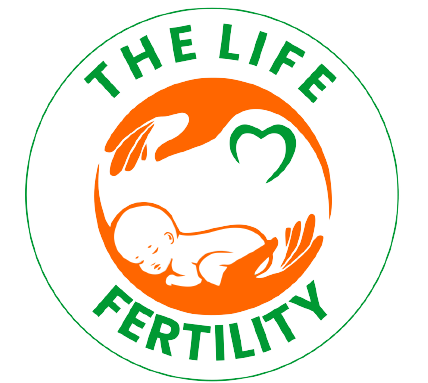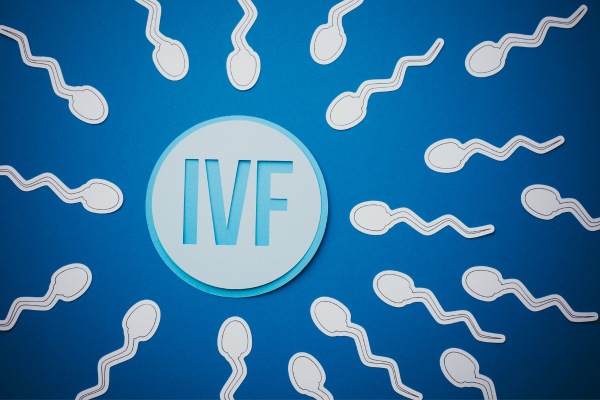Introduction
In Vitro Fertilization (IVF) has revolutionized the field of reproductive medicine, offering hope to countless couples struggling with infertility. However, like any medical procedure, it comes with its own set of pros and cons.
In Vitro Fertilization (IVF) is a groundbreaking procedure that has provided hope to many couples struggling with infertility. One of the key advantages of IVF is its high success rate, especially for couples with specific fertility issues. It also allows genetic screening of embryos, reducing the risk of passing on hereditary diseases.
However, there are drawbacks to consider as well. IVF can be emotionally and financially taxing, with multiple rounds often needed before successful conception. There are also potential health risks associated with the procedure, such as ovarian hyperstimulation syndrome. Additionally, some ethical concerns may arise regarding the handling and disposal of unused embryos.
Ultimately, deciding whether to pursue IVF requires careful consideration of both its benefits and challenges. Consulting with fertility specialists and fully understanding the process can help individuals make an informed decision about this reproductive option.
In this blog post, we will delve into the advantages and disadvantages of In Vitro Fertilization to provide a comprehensive understanding for those considering this option.
What is In Vitro Fertilization?
Before diving into the advantages and disadvantages of In Vitro Fertilization, it’s essential to understand what IVF entails.In vitro fertilization (IVF) is a sophisticated set of techniques designed to help individuals conceive a child. It involves extracting eggs from a woman’s ovaries, fertilizing them with sperm in a laboratory, and then implanting the resulting embryos into the woman’s uterus.
Table of Contents
The Advantages and Disadvantages of In Vitro Fertilization
The Advantages
1. High Success Rates
One of the key benefits of In Vitro Fertilization (IVF) is its remarkably high success rates, surpassing those of other fertility treatments. Technological advancements and refined medical procedures have led to substantial improvements in IVF success rates over time, offering hope to numerous couples struggling with infertility. The precision and effectiveness of IVF make it a preferred choice for many individuals seeking assistance in conceiving a child.
Moreover, the individualized approach taken in IVF treatment plans tailored to each couple’s specific needs further enhances the likelihood of a successful outcome. The continuous research and development in the field of reproductive medicine continue to contribute to optimizing IVF success rates, providing even more promising prospects for those considering this option. Additionally, the extensive experience and expertise of fertility specialists play a crucial role in maximizing the chances of successful fertilization through IVF procedures.
Overall, the high success rates associated with In Vitro Fertilization reflect the dedication and innovation driving advancements in reproductive healthcare, offering renewed optimism for those navigating the journey towards parenthood.
2. Overcoming Various Infertility Issues
In vitro fertilization (IVF) is a reproductive technology that offers hope for individuals facing infertility challenges. By utilizing IVF, couples dealing with blocked fallopian tubes, male fertility issues like low sperm count or poor motility, and cases of unexplained infertility can increase their chances of conceiving a child.
Women with fallopian tube blockages, which prevent the egg from meeting the sperm naturally, can benefit greatly from IVF. For men with low sperm count or motility problems, IVF provides an alternative method to achieve successful fertilization. In cases where traditional methods have failed to identify a specific cause of infertility, IVF offers a way forward by bypassing potential unknown barriers to conception.
The process involves collecting eggs from the female partner and sperm from the male partner to create embryos in a laboratory setting. These embryos are then transferred back into the woman’s uterus to implant and develop into a pregnancy. IVF has revolutionized fertility treatments by offering solutions to various complex infertility issues, providing new possibilities for individuals struggling to start a family.
3. Genetic Screening
Genetic Screening in In Vitro Fertilization (IVF) offers the option of preimplantation genetic diagnosis (PGD) or screening (PGS) to detect genetic disorders before implanting embryos. This can be especially advantageous for couples with a history of inherited conditions in their families. PGD involves testing embryos created through IVF for specific genetic abnormalities, allowing only unaffected embryos to be transferred into the uterus for pregnancy.
On the other hand, PGS examines embryos for chromosomal abnormalities, such as aneuploidy, which can lead to miscarriages or certain genetic conditions. By conducting these screenings prior to implantation, couples can make informed decisions about using genetically healthy embryos, increasing their chance of successful pregnancy and reducing the risk of passing on hereditary diseases to their offspring.
Overall, genetic screening in IVF plays a significant role in helping individuals and couples have healthier babies while also preventing the transmission of serious genetic disorders from one generation to the next. These technologies have revolutionized assisted reproductive techniques by providing a precise way to select embryos with the best chance of developing into healthy babies. Ultimately, this approach empowers individuals to make informed choices about family planning and ensures better outcomes for future generations.

4. Control Over Timing
In vitro fertilization (IVF) provides couples with the ability to have more control over the timing of starting a family. This can be especially beneficial for individuals who want to delay parenthood for reasons such as establishing their careers or fulfilling personal goals while maintaining the option of preserving fertility.
By undergoing IVF, couples have the flexibility to decide when they are ready to pursue pregnancy without being constrained by biological factors. Additionally, IVF allows individuals to plan ahead and strategically choose the optimal time frame for starting a family.
The process of IVF involves various fertility treatments that help increase the chances of successful conception, giving couples greater confidence in their family planning decisions. Furthermore, IVF offers couples the opportunity to address any underlying reproductive health issues that may affect their ability to conceive naturally.
Overall, IVF empowers couples with more autonomy and control over their reproductive choices by allowing them to determine when is the right time for them to embark on their journey towards parenthood.
5. Use of Donor Eggs or Sperm
In cases where individuals are unable to produce viable eggs or sperm, in vitro fertilization (IVF) offers the solution of using donor eggs or sperm. This process involves fertilizing the donated egg with the partner’s or donor’s sperm, or vice versa. By utilizing donor gametes, individuals who struggle with infertility can still have the opportunity to conceive a child.
For single parents and same-sex couples, the use of donor eggs or sperm in IVF opens up new avenues for starting a family. This technology has revolutionized reproductive options, allowing individuals to pursue parenthood regardless of their biological limitations. Additionally, donor gametes can help mitigate genetic disorders that may be present in one partner’s genetic makeup.
Through IVF with donor gametes, a more diverse range of individuals can experience the joys of parenthood. Patients utilizing this method should consult with fertility specialists to understand the legal and emotional implications associated with using donor eggs or sperm. Overall, the option of using donor eggs or sperm in IVF provides hope and opportunities for those facing challenges with their own reproductive capabilities.
6. Multiple Attempts
In contrast to certain other fertility treatments that limit couples to one chance per cycle, in vitro fertilization (IVF) offers the advantage of allowing multiple attempts within a single cycle. This flexibility is made possible by the ability to freeze any extra embryos created during the IVF process for potential future use. By preserving these additional embryos, individuals undergoing IVF can have another opportunity if their initial attempt is unsuccessful. This aspect of IVF can provide reassurance and hope to couples who may face challenges in conceiving through traditional methods. It also allows for further attempts without the need to undergo the entire treatment process each time.
Moreover, freezing excess embryos can be a cost-effective solution for those seeking fertility assistance, as it eliminates the need to go through every step of IVF from scratch with each attempt. The option of multiple attempts in a single cycle can reduce the emotional stress and financial burden often associated with infertility treatments. By offering this flexibility, IVF empowers individuals by enhancing their chances of achieving a successful pregnancy at their own pace and convenience. Ultimately, this benefit of IVF highlights its capacity to cater to the unique needs and circumstances of each individual or couple undergoing fertility treatment.
The Disadvantages of In Vitro Fertilization
1. Costly Procedure
In Vitro Fertilization, commonly known as IVF, is a fertility treatment that can be quite costly. The high cost associated with IVF is a major drawback for many individuals and couples seeking assisted reproductive technology. The procedure typically involves multiple steps, such as ovarian stimulation, egg retrieval, fertilization in the lab, and embryo transfer.
Each step incurs its own expenses, contributing to the overall cost of the treatment. Furthermore, success is not guaranteed with the first cycle of IVF, leading some patients to undergo multiple cycles in order to achieve pregnancy. These additional cycles can significantly increase the financial burden on individuals and families.
Despite its effectiveness in helping individuals conceive, the expensive nature of IVF makes it inaccessible to some people who may benefit from the treatment. Accessing IVF often requires significant financial planning and consideration due to its high cost implications.
2. Emotional and Physical Stress
Undergoing in vitro fertilization (IVF) can be a challenging journey that can impact both your emotional and physical health. The hormonal treatments involved in the procedure may result in mood swings, fatigue, and physical discomfort as your body adjusts. These side effects can contribute to increased levels of stress and anxiety.
Additionally, the uncertainty surrounding the success of IVF and the waiting periods between each step can cause emotional strain. It is normal to experience feelings of frustration, sadness, or hopelessness during this process. It’s essential to prioritize self-care and seek support from loved ones or a mental health professional to cope with these challenges effectively.
Taking care of your emotional well-being is just as important as caring for your physical health throughout the IVF process. Engaging in relaxation techniques, mindfulness exercises, or counseling can help manage stress levels and promote emotional well-being. Remember that it’s okay to feel overwhelmed at times and to reach out for help when needed.
3. Risk of Multiple Pregnancies
In vitro fertilization (IVF) carries a heightened risk of multiple pregnancies, such as twins or triplets. While the chance of conceiving multiples is increased with IVF, it also raises concerns for the health and well-being of both the mother and babies. Multiple pregnancies often result in earlier deliveries, leading to higher rates of premature birth. Premature birth can bring about various complications, including low birth weight and possible developmental issues for the infants.
Additionally, mothers carrying multiple babies may face more challenging pregnancies due to the increased strain on their bodies. The risk of gestational diabetes and high blood pressure is also elevated in cases of multiple pregnancies during IVF treatments. Careful monitoring and medical attention are essential to manage these risks and ensure the best outcomes for both mother and babies involved in multiple pregnancies resulting from IVF procedures.
4. Potential Health Risks
In vitro fertilization, or IVF, is a commonly used assisted reproduction technique that comes with some potential health risks. One significant risk is ovarian hyperstimulation syndrome (OHSS), which occurs when the ovaries become swollen and painful due to an overabundance of hormones. Symptoms of OHSS can range from mild discomfort to severe complications such as difficulty breathing and kidney failure.
While rare, other health risks associated with IVF include ectopic pregnancy, multiple pregnancies, and pelvic infection. Ectopic pregnancy happens when the fertilized egg implants outside the uterus, typically in the fallopian tube, posing a serious threat to maternal health. Multiple pregnancies resulting from IVF increase the likelihood of premature birth and complications for both mother and babies.
Pelvic infections can occur after an IVF procedure due to bacteria entering the reproductive organs during embryo transfer. It’s important for individuals considering IVF to be aware of these potential health risks and discuss any concerns with their healthcare provider before proceeding with treatment. Regular monitoring and follow-up care can help minimize these risks and ensure a safe and successful outcome for those undergoing IVF.
5. Ethical Concerns
In vitro fertilization (IVF) has raised ethical concerns among some individuals. One major issue revolves around the creation and subsequent disposal of embryos that are not implanted during the treatment. Critics argue that discarding these embryos raises questions about the sanctity of life and the moral implications of creating life in a laboratory setting.
The ethical dilemmas surrounding IVF also touch on issues related to embryo research and genetic manipulation. Some worry about the potential consequences of manipulating embryos for experimentation or selecting certain traits in children. These concerns highlight the complexities of balancing scientific advancement with ethical considerations.
Additionally, there are debates about the commercialization of IVF and whether it commodifies human life. Critics argue that the financial aspects of IVF may create inequalities in access to fertility treatments, leading to ethical questions about who gets to benefit from these technologies.
Ultimately, ethical concerns surrounding IVF highlight the intersection of science, morality, and personal beliefs. It is essential for healthcare providers and policymakers to consider these ethical dimensions when navigating the landscape of assisted reproductive technologies like IVF.
6. No Guaranteed Success
While in vitro fertilization (IVF) enjoys higher success rates than many other fertility treatments, it is not a guarantee of pregnancy. Success rates can be affected by various factors, including the age of the individual undergoing treatment. Younger patients generally have better chances of success with IVF due to higher egg quality and quantity.
Additionally, underlying fertility issues such as endometriosis or polycystic ovary syndrome can impact the success of IVF. Individuals with certain health conditions may also face obstacles in achieving a successful pregnancy through IVF. It is crucial for patients to have realistic expectations and understand that IVF outcomes can vary from person to person.
Factors such as lifestyle habits, including smoking and excessive alcohol consumption, can also influence the effectiveness of IVF treatments. The expertise of the fertility clinic and medical team providing the treatment can play a significant role in the overall success rate of IVF procedures. Therefore, individuals considering IVF should consult with experienced professionals to discuss their specific circumstances and likelihood of success.
Conclusion: Weighing the Advantages and Disadvantages of In Vitro Fertilization
Understanding the advantages and disadvantages of In Vitro Fertilization is crucial for anyone considering this fertility treatment option. While it offers numerous benefits such as high success rates, genetic screening capabilities, and solutions for various infertility issues, it also comes with challenges like high costs, emotional stress, and potential health risks.
Ultimately, the decision to pursue IVF should be made after thorough consultation with medical professionals who can provide personalized advice based on individual circumstances. By weighing both sides carefully, couples can make informed decisions that align with their goals and values in their journey toward parenthood.



